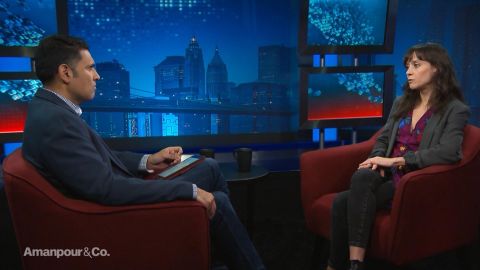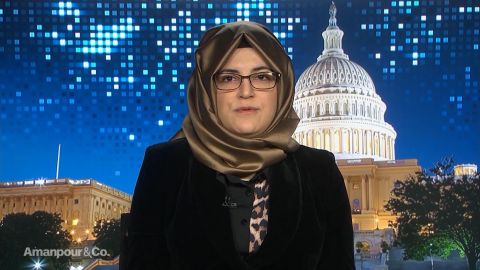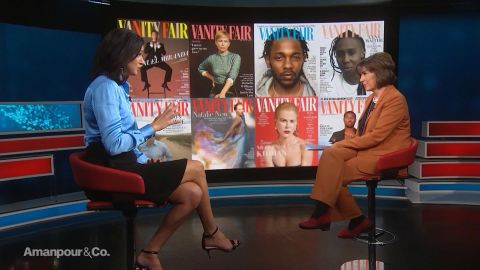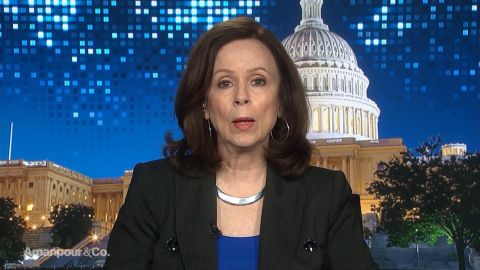Read Transcript EXPAND
CHRISTIANE AMANPOUR: the fact of the matter is that whether it is “Vanity Fair” or “Vogue” or these big glossy magazines, sales are going down. I mean, at “Vanity Fair,” I think they went down about 37 percent over 2018. And I just wonder, how you keep the profile in this era?
RADHIKA JONES, EDITOR-IN-CHIEF, VANITY FAIR: Well, a few things. One, just to be clear, circulation is not only stable but rising. And so, that’s another important barometer of reader engagement and loyalty. And so, we’re feeling good about that. There are simply fewer newsstands than there used to be. So, we grapple with that problem for sure. But I am very bullish on the print magazine for a number of reasons. One of them is that covers, as we’re seeing, still hold a lot of power. And the thing is that they hold power precisely because of the digital environment. Because when we release a cover now, we do it digitally, we do it on Instagram, we do it on our own site, we do it on Twitter, and we’re finding engagement with readers who maybe had not come across “Vanity Fair” before but they’re seeing it now because it turns up on their feeds. And so, when we make choices about who goes on our cover, we’re reaching more people. And that’s exciting. So, that’s one thing. The other thing is that print still matters even as a conversation driver. And certainly, we saw that with Lena Waithe, we saw that with Beto O’Rourke cover.
AMANPOUR: And that really has created a huge amount of interest. It was so obviously timed to come out as he declared his run for presidency. But he then got a bit embarrassed, I think, about the tag line, the, “I was born to be in it.” I’m going to play what he said about it and then we can talk about it.
(BEGIN VIDEO CLIP)
DAVID AXELROD, CNN: You a little guff for it, and probably unfairly because the whole quote was a little bit different.
BETO O’ROURKE, PRESIDENTIAL CANDIDATE: Right.
AXELROD: But it seemed a little cheeky.
O’ROURKE: As though I were born —
AXELROD: When you saw it, did you think that?
O’ROURKE: Yes. I was frustrated, to be honest with you —
AXELROD: Yes. Welcome to the NBA, man.
O’ROURKE: — yes, that that was the quote they chose to use.
(END VIDEO CLIP)
AMANPOUR: Well, what do you make of that? I mean —
JONES: I’m glad to be in the NBA, too. No. I think, it’s funny to remember but, two months ago, Beto O’Rourke he had not been profiled by a major national media outlet. It seems crazy now, considering how much people know about him, but he had obviously come — he had risen up through his Senate race against Ted Cruz. He was a figure of total fascination. I was hearing about him on the East Coast, the West Coast, he was interesting to donors, he was interesting to our readers. And so, of course we pursued this profile and it was a very competitive story to be the first outlet to be able to tell his story nationally. And so, I’m really proud of it.
About This Episode EXPAND
Christiane Amanpour speaks with writer Robin Wright about the troubling state of U.S. foreign diplomacy; Hatice Cengiz about her late fiancé, Jamal Khashoggi; and editor-in-chief of Vanity Fair Radhika Jones about her first year at the magazine. Hari Sreenivasan speaks with filmmaker Rachel Lears about her film “Knock Down the House.”
LEARN MORE



